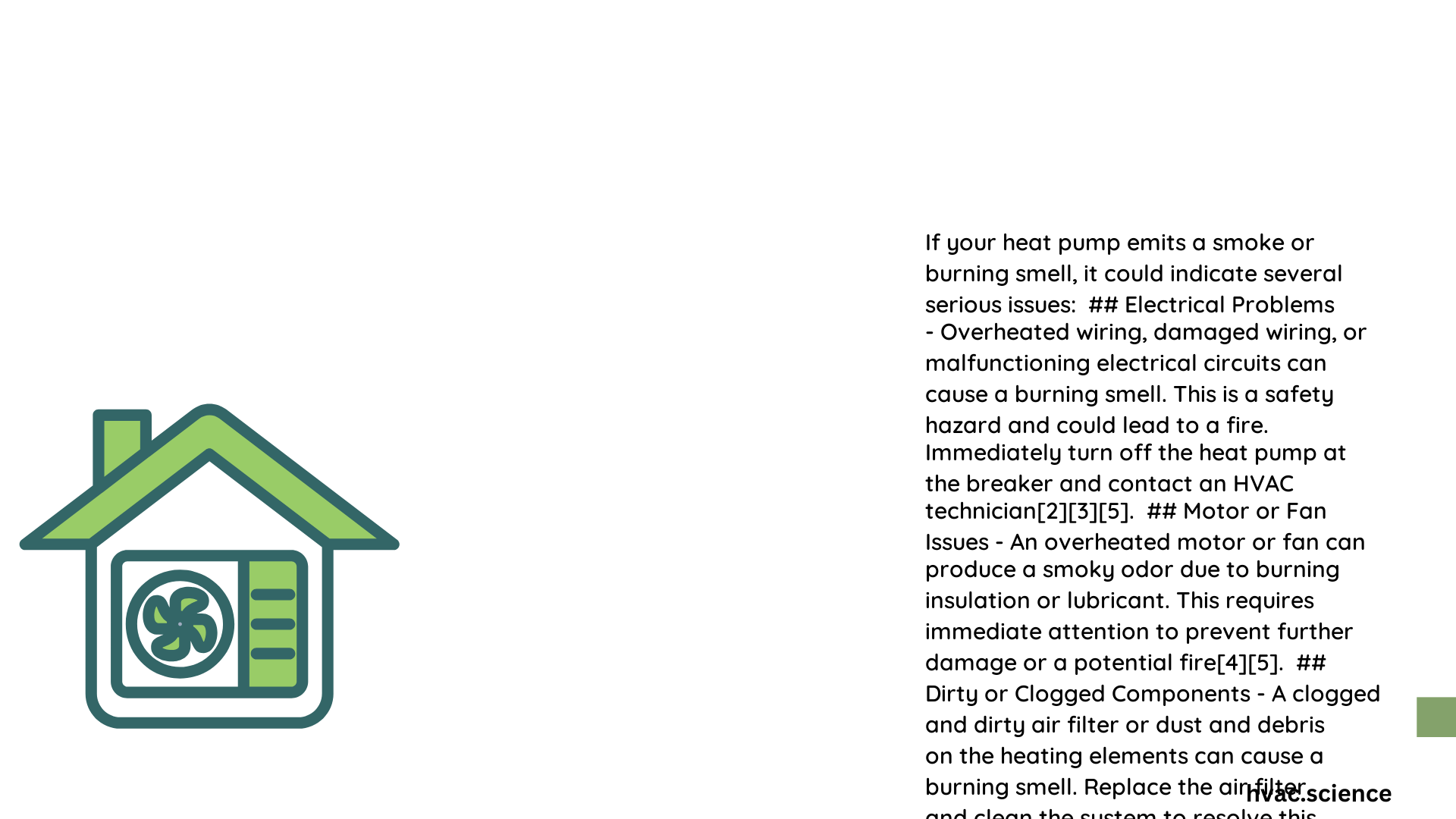A heat pump smoke smell can signal various underlying issues ranging from minor dust accumulation to serious electrical malfunctions. Homeowners experiencing this problem should remain alert, as the smell could indicate potential safety risks that require immediate attention and professional assessment. Understanding the root causes and appropriate response strategies is crucial for maintaining system efficiency and household safety.
What Triggers Heat Pump Smoke Smell?
Mechanical Origins of Smoke Smell
Heat pump smoke smells typically emerge from several mechanical and environmental factors:
- Dust Accumulation
- Dust on electric heater coils
- Debris in heating components
-
Seasonal system inactivity
-
Electrical Component Stress
- Overheated motor windings
- Damaged electrical connections
- Insulation breakdown
Potential Risk Factors
| Risk Level | Symptoms | Recommended Action |
|---|---|---|
| Low Risk | Occasional mild burning smell | Clean air filter, check vents |
| Medium Risk | Persistent burning odor | Inspect electrical components |
| High Risk | Strong smoke smell, visible sparking | Immediate system shutdown |
How to Diagnose Heat Pump Smoke Smell?

Systematic Troubleshooting Approach
Visual and Sensory Inspection
- Check air filter condition
- Examine vent openness
- Listen for unusual mechanical sounds
- Observe any visible smoke or sparking
Professional Diagnostic Techniques
- Electrical resistance testing
- Thermal imaging
- Comprehensive system evaluation
When Should You Call a Professional?
Critical Warning Signs
- Continuous burning smell
- Electrical burning odor
- Smoke emission
- Unusual system performance
Potential Repair Scenarios
- Minor Repairs
- Air filter replacement
- Duct cleaning
-
Coil maintenance
-
Major Interventions
- Motor replacement
- Electrical system repair
- Complete heat pump overhaul
Cost Considerations for Heat Pump Smoke Smell Resolution
Average Repair Expenses
- Basic maintenance: $50 – $200
- Moderate repairs: $200 – $500
- Complex interventions: $500 – $1,500
Preventive Maintenance Strategies
Regular System Care
- Annual professional inspection
- Quarterly air filter replacement
- Keep outdoor units clean
- Maintain proper airflow
Safety Protocols
Immediate Actions
- Shut off system at circuit breaker
- Unplug electrical connections
- Ventilate affected area
- Contact HVAC professional
Technical Insights
Electrical Component Stress Factors
- Voltage fluctuations
- Mechanical wear
- Environmental humidity
- Insulation degradation
Conclusion
Understanding and promptly addressing heat pump smoke smell requires a balanced approach of personal vigilance and professional expertise. While some issues can be resolved through simple maintenance, others demand specialized technical intervention.
Recommended Next Steps
- Perform initial visual inspection
- Document specific smell characteristics
- Contact certified HVAC technician
- Schedule comprehensive system evaluation
